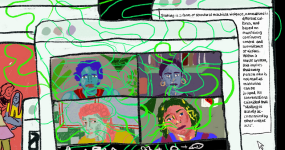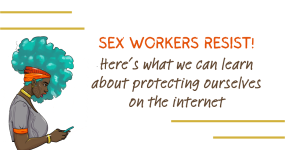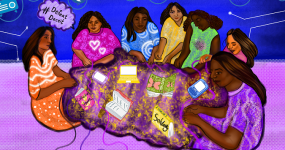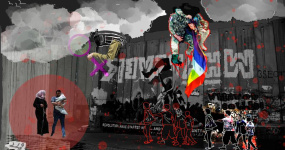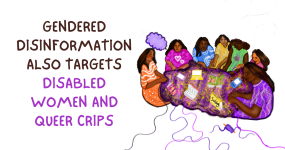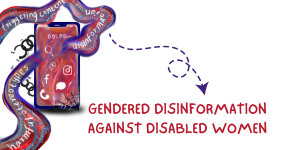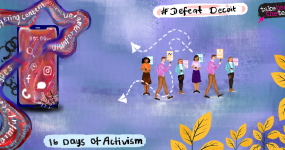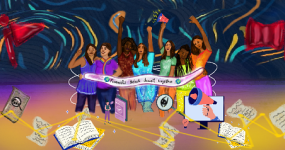“This violence is intersectional and may be accompanied by other forms of violence. A person can be physically followed, stalked, or spied on for subsequent threats. It all comes together. A holistic vision is needed to approach this work and undertake a risk assessment that tries to detect digital signals or others,” Marla from InterSeclab remarked in the Feminist Learning Circle: "…
Discrimination, abuse, exploitation, stalking, harassment, or cyberbullying reproduce gender-based violence and affect the offline lives of victims/survivors, evidencing the impact of virtual and technological spaces on everyday life. Online Gender-Based Violence (OGBV) is a continuation of offline violence, and it is increasingly widespread and malicious in patriarchal societies.A study…
As various technologies and Big Tech become a part of our lives, what we often trade in for connection, support and advice is privacy and the constant monitoring of our behaviours. Digital information includes search histories, the advertisements we click on, texts, emails, location tracking, and so much more.Such sensitive information, in the wrong hands, can be used to criminalise bodies and…
Every year, the world celebrates International Human Rights Day on 10 December. This annual celebration commemorates resilience and the day when the Universal Declaration of Human Rights came into effect. It paved the way for international human rights instruments, and was an important document in the modern journey to uphold human rights globally.The introduction in the United Nations’…
“Through its propaganda, Israel is aiming to break Palestinian souls, to break us as human beings.” These were the words of one of the speakers at the webinar, “Palestinian Feminist Voices: Atrocities Propaganda and Gendered Disinformation”, that Noor, Take Back The Tech! (TBTT) and GenderIT hosted on March 14. These discussions illustrated the weaponisation of atrocities propaganda and gendered…
Take Back the Tech! is proud to present this overview paper regarding non-consensual intimate imagery (NCII) by Rohini Lakshané. It unpacks definitions, the impact on survivors/victims, how morality and victim-blaming is often interwoven in responses, the difficulty of action, types of legislation (and limits) to address it, and, importantly, resources for take-down and coping with NCII.As…
Online gender-based violence, including gendered disinformation, uses gender as the main axis for their attacks against a target (or targets). But it’s not the only identity they use. Attackers often also use various other marginalised identities their target(s) may have in their attacks to demean and invalidate women and queer persons.One of these identities is disability. Although disability-…
Online gender-based violence in general, and the phenomenon of gendered disinformation in particular, are not only affected by gender. They are exacerbated by all forms of hierarchy.So what is gendered disinformation? Gendered disinformation is a strategy to silence women and queer folks that “uses false or misleading gender and sex-based narratives against women, often with some degree of…
Women Human Rights Defenders — which includes queer and non-binary defenders — have been fighting and advocating for environmental and climate justice in a number of ways, supported by strong relationships with their communities and territories.From a push for policies and laws — both locally and internationally — and direct action (for example: protests and blockades) to research, analysis and…
Women human rights defenders (WHRDs) — women and girls working on any human rights issue, or people of any gender(s) working to promote gender equality (which might also include civil society actors who work in non-traditional fields such as journalists, health workers and private actors) — are an integral part of communities around the world.They play a critical role in upholding the human…

